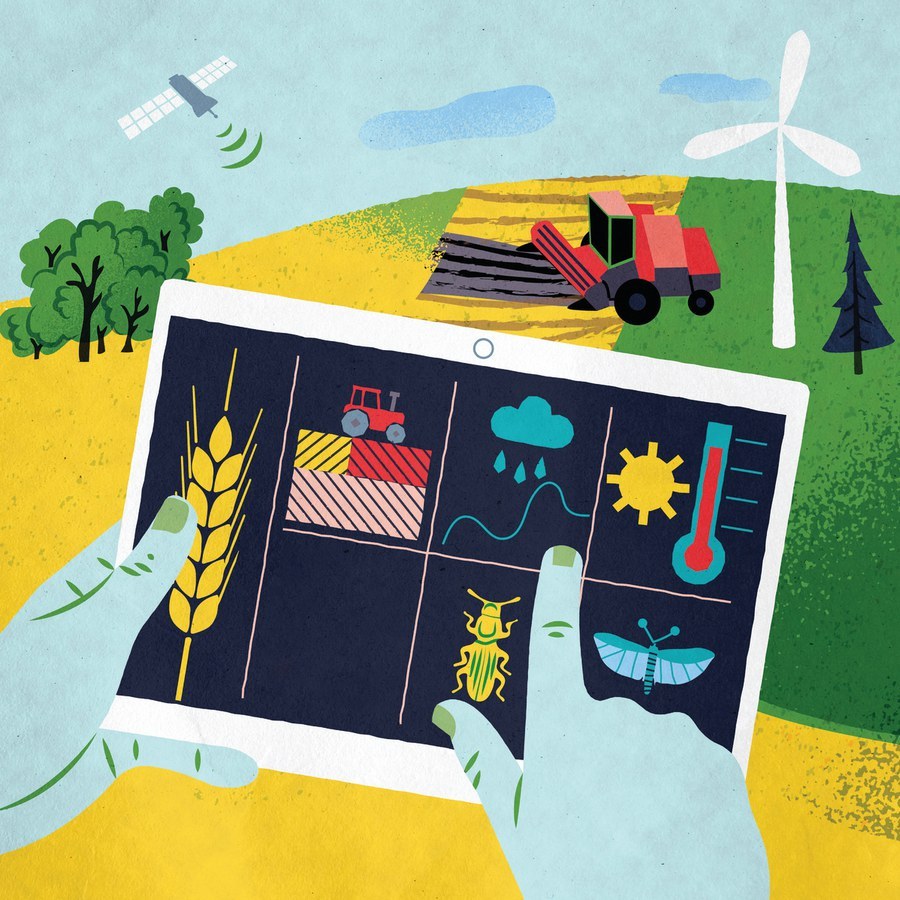Posted: April 3, 2024
Leveraging emerging technologies to support people and the planet

Photo credit: Jens Magnusson / Ikon Images
As the world grapples with the unprecedented challenges of climate change, the alarming loss of biodiversity and the constraints imposed by limited resources, it becomes increasingly clear that our agricultural systems can provide solutions that support food security, human well-being and environmental health.
In Penn State's College of Agricultural Sciences, we embrace the responsibility of developing and fostering agricultural systems that safeguard the delicate balance between production and conservation. With our college's unique history and diverse capabilities, we are positioned to address these challenges by taking a holistic approach through Technologies for Agriculture and Living Systems.
This new initiative builds on the strengths and opportunities provided by the landscapes, communities and people of Pennsylvania. The initiative will address our needs in Pennsylvania and beyond by fostering the development and expansion of emerging and advanced technologies, including robotics, sensors, artificial intelligence (AI), genomics and gene editing. Our goal is to provide tools and resources to support growers, conservationists, urban planners and the public, thereby promoting sustainable food production, human and animal health, and effective management and conservation of biodiversity.
With the rapid pace of advancements in computer science and engineering — and our increasing understanding of the dynamics of microbes, plants, animals and ecosystems — it is becoming possible to adapt these technologies from their current applications on large-scale farms to a broader range of contexts, including mid- and small-scale operations, forests, watersheds, cities and backyards.
Pennsylvania's diverse agricultural, natural and urban landscapes and Penn State's significant investments in interdisciplinary research, education and community engagement set the stage for Pennsylvania to be a global leader in this holistic approach that has the potential to transform agricultural production, natural resource conservation, community health and workforce development for the next generation of agricultural leaders.
Today, faculty in the college are amplifying their expertise by designing and employing these new technologies to monitor, manage and model agricultural production, the spread of invasive species and diseases, biodiversity loss, livestock health, forest health, water and habitat quality, human nutrition, and food access systems.
Alongside expanding our research expertise, the college takes a multipronged approach to workforce education in technology and AI applications for living systems. One outstanding example of this is a novel, interdisciplinary training program for graduate students that brings together faculty from the colleges of Agricultural Sciences, Engineering, and Earth and Mineral Sciences through the support of a $3 million National Science Foundation Research Traineeship grant awarded to Penn State for the project titled "Interdisciplinary Studies in Entomology, Computer Science and Technology network," or INSECT NET. At the core of this project is developing graduate courses, certificates and internships. Importantly, the programming, engineering and AI approaches leveraged in the program also can be readily adapted to K-12 education, including 4-H, thereby allowing us to expand workforce development in the commonwealth.
Above all, the core of this vision lies in collaboration. Our college has a rich history of convening and facilitating diverse audiences, tackling complex and new challenges, and creating effective solutions. As we continue to build toward this vision, we enthusiastically encourage like-minded partners from academia, industry and government to join us on this journey as we elevate agricultural systems for the betterment of the planet.
Christina Grozinger, Publius Vergilius Maro Professor of Entomology at Penn State, leads the research arm of the Technologies for Agriculture and Living Systems Initiative.


